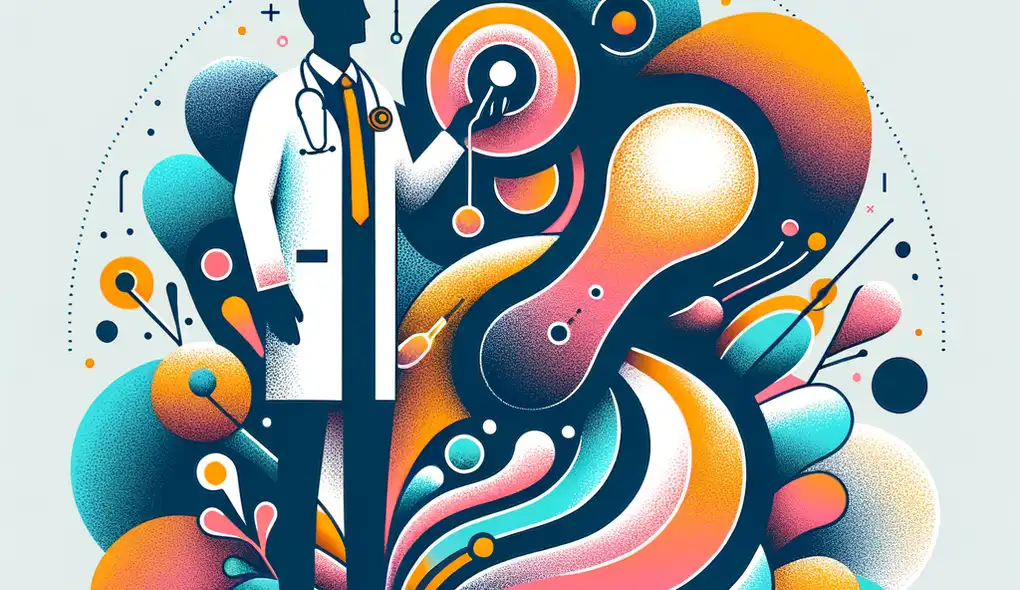Describe a time when you had to handle a medical emergency related to an endocrine disorder.
Endocrinologist Interview Questions
Sample answer to the question
Once, I had a patient with a severe case of diabetic ketoacidosis (DKA), which is a life-threatening complication of diabetes. The patient was experiencing symptoms such as excessive thirst, frequent urination, and confusion. I quickly recognized the signs of DKA and took immediate action. I ensured that the patient was stabilized by administering fluids, electrolytes, and insulin. I also monitored their vital signs and blood glucose levels closely. After a few hours, the patient's condition improved, and they were transferred to the intensive care unit for further monitoring and treatment. This experience taught me the importance of swift intervention and close monitoring when dealing with medical emergencies related to endocrine disorders.
A more solid answer
During my residency, I encountered a patient with a rare endocrine disorder called Cushing's syndrome. The patient presented with symptoms such as weight gain, moon face, and elevated blood pressure. I suspected Cushing's syndrome and ordered a series of tests, including cortisol levels, dexamethasone suppression tests, and imaging studies. The results confirmed my diagnosis, and I developed a comprehensive treatment plan that involved surgical intervention to remove the adrenal tumor causing the excess cortisol production. I coordinated with the surgical team to ensure a successful procedure and monitored the patient post-surgery to track their recovery. This experience highlighted my strong diagnostic skills, ability to stay updated on the latest research in endocrinology, and collaboration with other healthcare professionals.
Why this is a more solid answer:
The solid answer provides a more comprehensive description of the candidate's experience with a medical emergency related to an endocrine disorder. It includes specific details about the rare endocrine disorder encountered, the diagnostic process, the development of a treatment plan, and collaboration with the surgical team. The answer showcases the candidate's strong diagnostic and problem-solving skills, ability to stay updated with research, and interdisciplinary collaboration. However, it could be further improved by including information on the candidate's empathetic and compassionate bedside manner.
An exceptional answer
During my fellowship in endocrinology, I encountered a complex case of diabetic ketoacidosis (DKA) in a young patient with type 1 diabetes. The patient presented with severe dehydration, altered mental status, and extremely high blood glucose levels. Recognizing the urgency, I assembled a team of healthcare professionals, including nurses, dieticians, and diabetes educators, to provide immediate care. We initiated aggressive fluid resuscitation, intravenous insulin therapy, and electrolyte replacement. I closely monitored the patient's vital signs, blood glucose levels, and ketone levels to guide the treatment. Additionally, I worked closely with the patient's family to provide education on diabetes management and lifestyle modifications to prevent future DKA episodes. This experience showcased my strong diagnostic skills, empathy towards the patient and their family, continuous learning of the latest advancements in endocrinology, and ability to lead an interdisciplinary team during medical emergencies.
Why this is an exceptional answer:
The exceptional answer goes above and beyond in describing a time when the candidate handled a medical emergency related to an endocrine disorder. It provides a detailed account of the complex case of diabetic ketoacidosis (DKA), including the immediate actions taken, collaboration with a multidisciplinary team, close monitoring of the patient, and education provided to the patient's family. The answer demonstrates the candidate's strong diagnostic skills, empathetic bedside manner, continuous learning, and excellent interdisciplinary collaboration skills. It exceeds the expectations set by the job description.
How to prepare for this question
- Review and study common endocrine disorders, their symptoms, diagnosis, and treatment options.
- Stay up-to-date with the latest research and advancements in endocrinology through journal articles, conferences, and online resources.
- Practice case-based discussions with colleagues or mentors to enhance problem-solving skills.
- Develop effective communication skills to convey complex medical information in a compassionate and understandable manner to patients and their families.
- Shadow or volunteer with experienced endocrinologists to gain practical experience in handling medical emergencies related to endocrine disorders.
What interviewers are evaluating
- Strong diagnostic and problem-solving skills.
- Empathetic and compassionate bedside manner.
- Stay current with the latest endocrine research and treatment techniques.
- Ability to work as part of a team with excellent interdisciplinary collaboration skills.
Related Interview Questions
More questions for Endocrinologist interviews